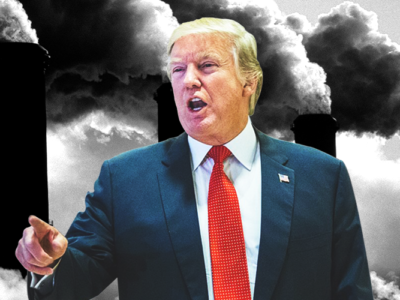Oil’s Fate is in CA Voters’ Hands
A measure backed by the oil industry to overturn an oil and gas ban will appear on the ballot in 2024. There are lessons from the plastic bag ban referendum.
The impacts of oil and gas production on the environment and communities, particularly low-income communities of color, are well-documented. The health effects associated with living near oil and gas wells include asthma, nose bleeds, headaches, birth defects, cancer, and premature death. Oil and gas operations also pollute the air and water and contribute to climate change. Given these harms, it is no surprise that environmental and environmental justice advocates have been fighting to stop neighborhood oil drilling for over a decade.
After two unsuccessful attempts to create an oil and gas buffer zone at the state level and the success of numerous local efforts to phase out oil and gas activities, the State of California passed SB 1137, a drilling setback law that was introduced by Senator Lena Gonzalez. SB 1137 prohibited the California Geologic Energy Management Division (“CalGEM”) from approving the drilling of new oil and gas wells within a 3,200-foot radius of sensitive receptors, such as homes, schools, and hospitals. This “health protection zone” would create a buffer between new oil and gas wells and communities, with the goal of protecting people from the harmful health effects of drilling. Operators would also be required to submit a sensitive receptor inventory or a statement certifying there are no sensitive receptors within 3,200 feet of the well.
The bill also created health, safety, and environmental requirements for existing wells within health protection zones that were scheduled to take effect in January 2025. These requirements include compliance with permitting, public notice, and light, noise, and pollution mitigation mandates, as well as the creation and implementation of a leak detection plan. The bill represented a significant step in protecting frontline communities from air and water pollution from oil and gas activities.
But this hard-fought victory is up in the air. The oil and gas industry, through a trade group, is sponsoring a referendum to reverse these protections. The measure will appear on the November 2024 ballot. As a result, SB 1137 has been suspended. This is a major upset for communities that fought hard for a buffer zone, and communities that are currently suffering from the impacts of urban oil drilling remain unprotected.
This is not the first time an industry association has sponsored a referendum to overturn an environmental law that would hurt its members’ profits. Remember the plastic bag ban?
In 2016, out-of-state plastic bag manufacturers sponsored Prop 67 (and Prop 65) in an attempt to overturn the ban on single-use plastic bags. That referendum asked voters to disapprove SB 270 (Padilla, 2014), which prohibited certain stores from providing single-use plastic carryout bags and required stores to charge customers a bag fee. There are similarities between the plastic bag ban referendum and the new oil and gas referendum. After years of activism, cities and counties in California had started passing local bans to prevent stores from providing flimsy, free plastic bags at check-out – an effort that culminated in a statewide ban. The makers of plastic bags argued the ban unfairly targeted one industry, that it would inconvenience consumers, and that it would do little to help the environment. By qualifying a proposition, the industry was able to put the law on hold while waiting for voters to decide. The industry simultaneously pushed Prop 65, which focused on fees for paper bags, in what the LA Times editorial board called a “cynical ploy to confuse voters.” Despite an expensive, and at times misleading, campaign to pass the referendum, it failed, and California voters affirmed the plastic bag ban.
If voters reject the oil and gas referendum in 2024, SB 1137 and its critical health and safety protections can take effect. While this outcome may seem promising, concerns about the accuracy of the framing of the referendum and how much money the oil and gas industry is spending to campaign for the referendum have been raised. Oil companies and the trade association have already spent $20 million. The referendum, which aims to undo the protections created by SB 1137, has been promoted as doing the opposite. There have been widely reported instances of signature gatherers telling California voters that the potential referendum would protect people from oil drilling. Thus, ensuring voters are well-informed about the true impacts of the referendum is critical.
Waiting for November 2024 is not the only option. Local jurisdictions, including the City and County of Los Angeles, have banned new oil and gas development and are currently working on phasing out existing operations, which can provide protections for some communities in the near term. At the state level, Governor Newson could direct CalGEM to implement emergency setback rules and stop issuing new permits, although he has opted not to do so in the past.
Even if alternative solutions are undertaken in the short term, the result of the November 2024 election will be significant, as it presents the opportunity to affirm the creation of a buffer zone between oil and gas activities and communities and for voters to weigh in on the future of oil and gas development in the state.
And like in 2016, there is likely to be much debate about whether it is good or bad for democracy that corporations can challenge – and immediately put on hold – a law they do not like that was passed by the Legislature and the governor.






Reader Comments